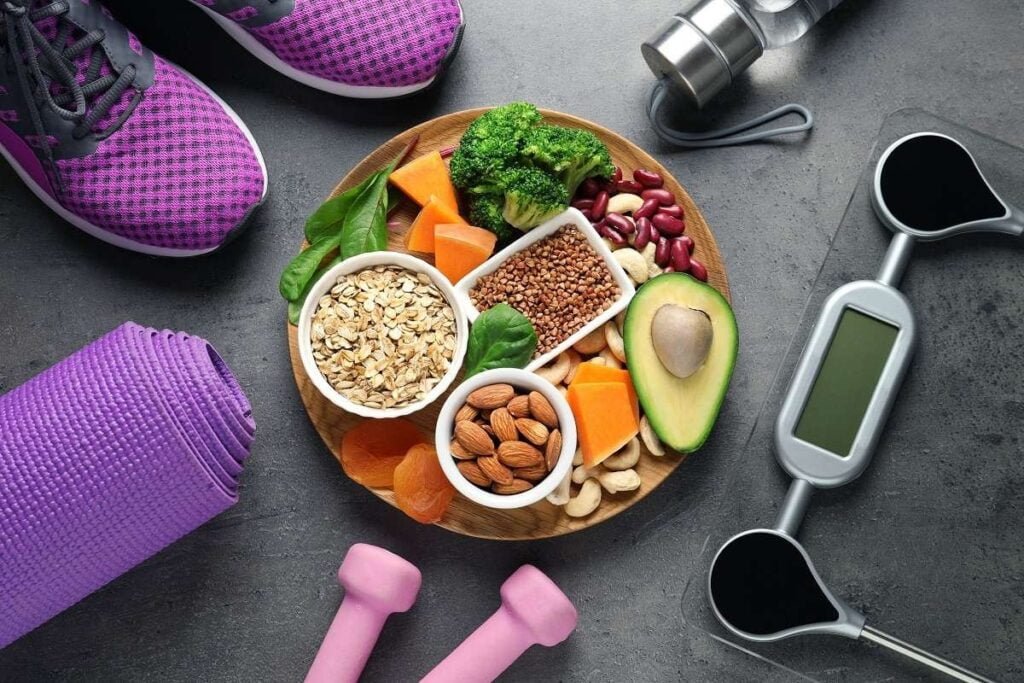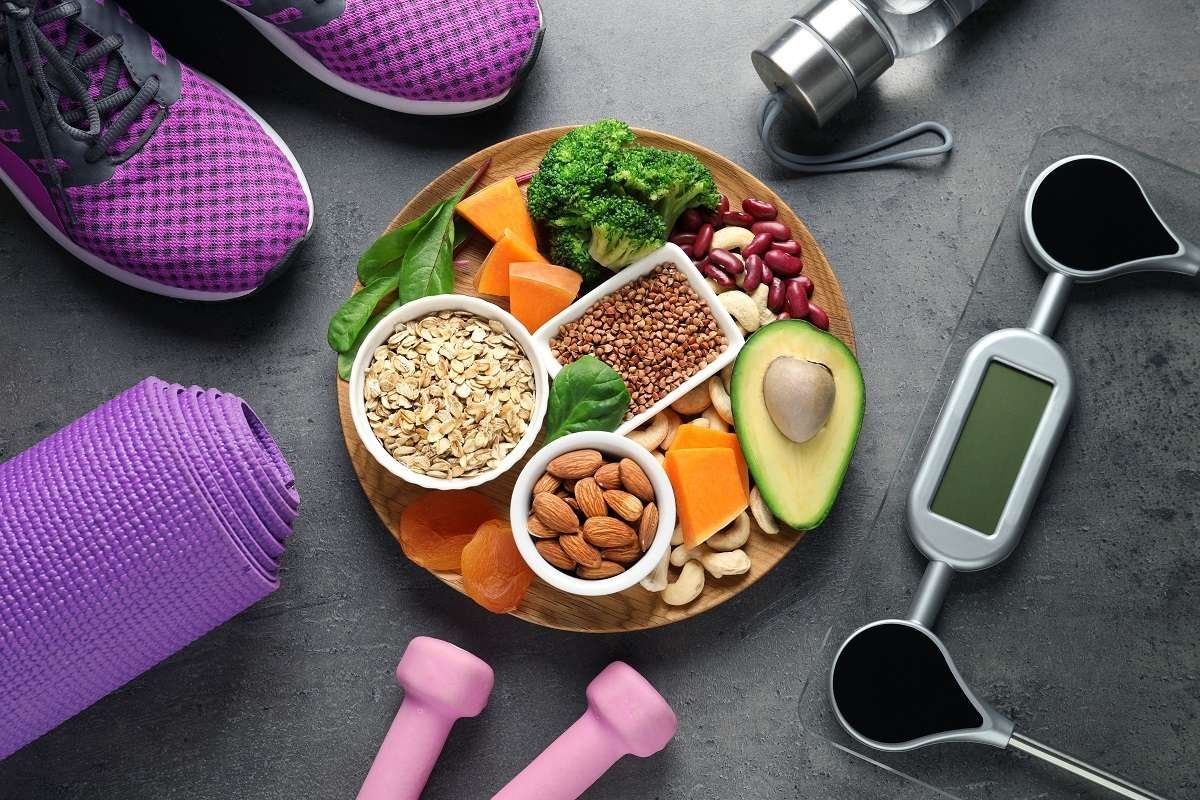Looking for nutrition tips for enhancing sports performance? When it comes to sports performance, what you consume is equally significant as the intensity of your training. Following a well-designed sports nutrition program is essential for maximizing your performance and building strength. The specific nutritional requirements vary depending on factors such as your body size, type of sport, and frequency of participation.
To develop a customized plan tailored to your needs and activities, it’s highly recommended to consult with a nutritionist or sports dietitian. However, there are some fundamental principles that apply to all programs. In the realm of sports, achieving optimal performance goes beyond rigorous training and innate abilities. Your nutrition plays a vital role in supplying the energy, endurance, and stamina necessary to excel in your chosen field.

Whether you’re a professional athlete or a passionate amateur, fine-tuning your nutritional intake can elevate your performance to new heights with our nutrition guidelines for athletes. In this comprehensive blog post, we’ll delve into seven nutrition tips for enhancing sports performance and propel you towards your desired goals.
People Also Read: Habits of People Who Stay Effortlessly Fit
Here are the nutrition tips for enhancing sports performance:
1. Prioritize Balanced Macronutrient Intake
A well-balanced diet that consists of carbohydrates, proteins, and healthy fats is essential for athletes. Carbohydrates are the primary energy source for your muscles and should make up the majority of your calorie intake.
Opt for complex carbohydrates like whole grains, fruits, and vegetables, which provide sustained energy. Proteins are essential for muscle repair and recovery, so include lean sources such as chicken, fish, beans, and tofu. Healthy fats, found in avocados, nuts, and olive oil, provide energy and support vital functions in the body.
2. Hydration: The Foundation of Performance
Proper hydration is crucial for maintaining optimal sports performance. Dehydration can lead to decreased endurance, impaired cognitive function, and an increased risk of heat-related illnesses. Athletes should aim to drink water consistently throughout the day and during exercise.
Before workouts or competitions, ensure you are well-hydrated by drinking enough water in the hours leading up to the event. During exercise, consider sports drinks or electrolyte-rich beverages to replenish both fluids and essential minerals lost through sweat.
3. Fuel Your Body Before and After Exercise
To perform at your best, it’s important to fuel your body appropriately before and after exercise. Before workouts or competitions, consume workout supplements that actually work or snack rich in carbohydrates, such as a bowl of oatmeal with fruits or a banana with nut butter is right nutrition for sport and exercise.
This provides your muscles with readily available energy. After exercise, prioritize protein intake to aid in muscle repair. Opt for a combination of protein and carbohydrates, such as a chicken and vegetable stir-fry with brown rice or a protein smoothie with fruits and Greek yogurt.
People Also Read: Benefits of Regular Exercise for Mental Health
4. Optimize Micronutrient Intake
While macronutrients are crucial, micronutrients are equally important for overall health and athletic performance. Ensure you’re getting an adequate intake of vitamins and minerals through a varied diet.
Leafy green vegetables, berries, citrus fruits, and nuts are excellent sources of antioxidants, vitamins, and minerals. Consider consulting a registered dietitian to identify any specific micronutrient deficiencies and explore the possibility of supplementation if necessary.
5. Time Your Meals and Snacks Strategically
The timing of your meals and snacks can significantly impact your sports performance. Aim to eat a balanced meal two to four hours before exercise to allow for proper digestion. If you have less time, opt for a lighter snack that combines carbohydrates and a small amount of protein.
For longer training sessions or competitions, consider consuming small amounts of easily digestible carbohydrates during the activity to maintain energy levels. After exercise, prioritize post-workout nutrition within 30 minutes to two hours to optimize recovery.
6. Listen to Your Body’s Hunger and Fullness Cues
It’s essential to develop a healthy relationship with foods that increase athletic performance and listen to your body’s hunger and fullness cues. While fueling adequately is crucial, overeating can lead to discomfort and sluggishness, while undereating can deprive your body of necessary nutrients. Learn to recognize your body’s signals and eat until you feel satisfied but not overly full. Experiment with portion sizes and meal timing to find what works best for your performance and recovery.
7. Seek Professional Guidance
Nutrition is a complex field, and seeking professional guidance can be invaluable in optimizing your sports performance. Consider consulting a registered dietitian who specializes in sports nutrition. They can assess your specific needs, create personalized meal plans, address any dietary restrictions or allergies, and provide ongoing support and guidance. A dietitian can also help you navigate the vast array of supplements available on the market, ensuring you make informed choices that are safe and effective.
People Also Read: 8 Strategic Ways to Make Fitness a Habit
Conclusion
When it comes to enhancing sports performance, nutrition is a fundamental pillar that cannot be overlooked. By following these seven nutrition tips, you can fuel your body effectively, optimize your energy levels, support muscle repair and recovery, and ultimately perform at your best. Remember that each athlete is unique, and finding the best nutrition for athletic performance may require some experimentation and fine-tuning. What works for one person may not work for another, so be patient and attentive to your body’s individual needs.




